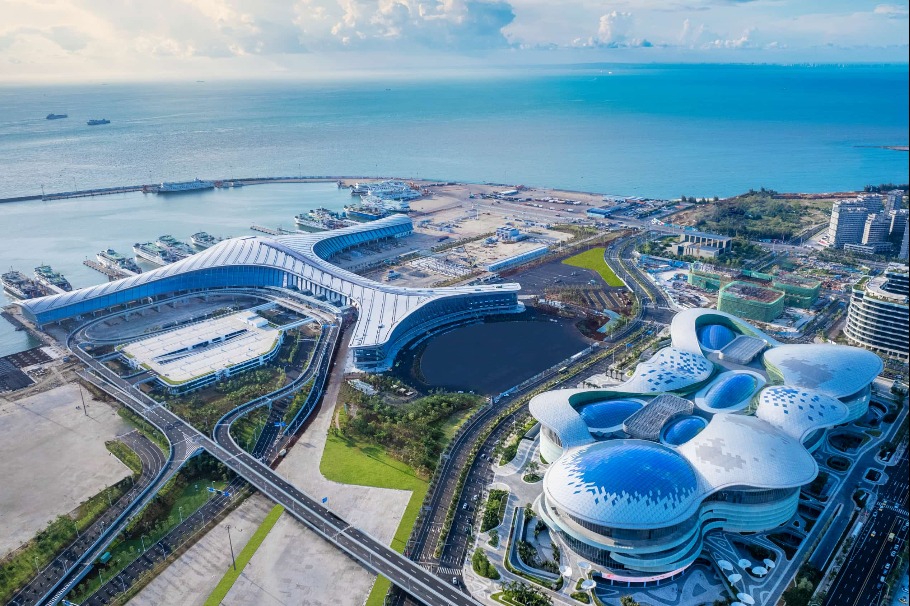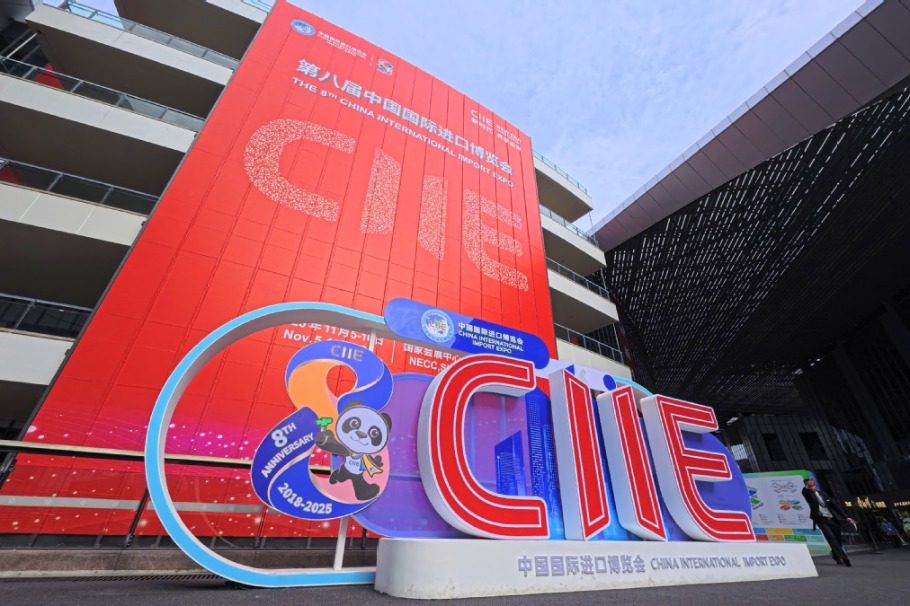What lessons should the Philippines learn from the maritime incident?


Recently, the Philippines' illegal transportation of construction supplies to Ren'ai Jiao (also known as Ren'ai Reef) in NanSha Islands and China's countermeasures have attracted the attention of neighboring countries. After the incident occurred, some countries worried whether it would affect the overall situation in the South China Sea.
The essence of the South China Sea issue is disputes over territorial sovereignty and maritime delimitation among the countries concerned. However, with changes in the regional and international situation, this issue has reflected more and more geopolitical competition, major power confrontation and regional security factors. In recent years, China has made great efforts to promote regional peace and maritime cooperation, and countries in the region have gained a deeper understanding of the common interest of peace and stability in the South China Sea.
The maritime situation on Ren'ai Jiao reflects the territorial sovereignty dispute between China and the Philippines in the South China Sea. Although it caused some disturbances, it will not upend the overall stability of the South China Sea. Maybe the Philippines will take some measures in maritime, diplomacy, and public opinion in the next step. For the United States, which provokes major power competition and group confrontation, it will still hype up relevant disputes and maritime events, sow discord between China and the Philippines, and strengthen the US-Philippines alliance. But in any case, through this incident, relevant countries should have a clearer and deeper understanding of China's determination and bottom line to safeguard its territorial sovereignty and maritime rights in the South China Sea.
As for the current negotiation on the "Code of Conduct in the South China Sea" that has attracted much attention, China and ASEAN countries have successfully completed the second reading of the text and are accelerating the promotion of the code to become an effective, substantive regional rule that complies with international law. In this context, the Philippines has repeatedly taken unilateral actions to carry out large-scale construction and reinforcement to the grounded warship, which in turn triggered maritime incident.
It is hard to say that this incident will not have any negative impact on the code’s consultation. The Philippines may make more demands and higher prices during the consultations, and its attitude may be tougher. But at the same time, we must also see that the code’s consultation has never been a matter between the Philippines and China, but a regional multilateral process for which China and all ASEAN countries are working together. In this sense, this incident truly highlights the importance, necessity, and urgency of China and ASEAN countries using the code to manage and control maritime conflicts and avoid crisis escalation. However, before the completion of the code’s consultations, the countries involved in the dispute still need to work together with China to fully, effectively, completely and faithfully implement the code.
There are some views that China "acted tough" and "overreacted" in handling the maritime incident. In fact, on the contrary, China behaved professionally and restrainedly. Proceeding from humanitarianism and friendly relations between China and the Philippines, China has made temporary special arrangements for the Philippines to deliver food and other necessary daily necessities to the grounded warship. But at the same time, the measures China has taken have not only effectively safeguarded its territorial sovereignty over the Nansha Islands, including the Ren'ai Jiao, but also minimized the risk of escalating friction and conflict after maritime incidents.
After the incident, China promptly briefed the outside world on the situation at sea, the course of the incident, and the history of the Ren'ai Jiao issue, and voluntarily released video recordings. This approach may disappoint some countries and media that look at China with colored eyes, because they have lost an opportunity to slander and smear China with malicious hype and willful distortion.
Some commentators once said that wherever there is the United States in the world, there will be chaos. The US-Philippines alliance is the catalyst that stirs up the situation in the South China Sea. Since the first half of this year, the US-Philippines alliance has been visibly consolidated and strengthened. The US always mentions fulfillment of the US-Philippines Mutual Defense Treaty, which further stimulates the Philippines' speculative mentality on the South China Sea issue.
The increased strategic synergy between Washington and Manila has indeed had a negative impact on the situation in the South China Sea and China's security interests. It also poses challenges for China and the Philippines to grasp the correct direction of bilateral relations, properly handle the South China Sea issue, and jointly maintain regional stability. However, it may be biased to regard China’s response to this incident as a countermeasure against the US-Philippines alliance. The measures China has taken are essentially based on the need to safeguard its territorial sovereignty and maritime rights in the South China Sea.
The Philippines has made clear promises on many occasions to tow away the grounded warship on Ren'ai Reef. Over the years, China has exercised great restraint and patience in dealing with relevant disputes and has shown great goodwill and sincerity in managing maritime differences and preventing accidents. The Philippines should learn the following lessons from this incident:
The first is to correctly view the relevant disputes between China and the Philippines in the South China Sea. At the beginning of this year, the leaders of the two countries reached a consensus that the South China Sea dispute is not the whole of China-Philippines relations, and the two sides should properly manage their differences. The Philippines needs to implement this consensus, give full play to the role of the established bilateral maritime mechanism, and incorporate measures to maintain the stability of the maritime situation into this mechanism. Attempts to strengthen alliances and introduce foreign forces will only have the opposite effect.
The second is not to have any illusions that China will accept the illegal arbitration. The "arbitration award" violates international law including the United Nations Convention on the Law of the Sea, and there are many fallacies in legal interpretation and application, fact finding, and evidence admissibility, let alone a real settlement of relevant disputes. A piece of wastepaper under a political manipulation, no matter how hyped, quoted, or commemorated, will never become an international law applicable to the South China Sea, let alone a golden rule that promotes the development and evolution of the international law of the sea.
The third is to take a more serious, pragmatic and constructive attitude toward the code consultations. Negotiations on the code are not a platform that any country can use to seek geopolitical advantages, nor is the code a tool that the countries concerned can use to solidify their illegal gains in the South China Sea. The code is based on the consensus that the countries concerned put aside disputes and China and ASEAN countries jointly maintain peace and stability in the South China Sea. If the code is regarded as a document that "restricts China's behavior" or even forces China to give up its own claims, it will only delay the negotiation process and distance itself from the expectations of regional countries.
The fourth is to meet China halfway to deepen maritime cooperation. The South China Sea is the common homeland of China and its neighboring countries. The peace and stability of the South China Sea must be jointly maintained by the littoral states, and maritime governance in the South China Sea requires the cooperation of the littoral states. Achieving maritime cooperation in any piece of disputed waters is no easy task. Since the beginning of this year, China has successively proposed several maritime-related initiatives to the Philippines, including controlling the situation on the Ren'ai Jiao and joint maritime patrols. As long as the two sides can act with sincerity, eliminate external interference, carry forward valuable experience, and learn from useful practices, it is entirely possible to promote substantial breakthroughs in maritime cooperation and produce greater demonstration and driving effects.
Ding Duo is deputy director and associate research fellow, the Research Center for Ocean Law and Policy at the National Institute for South China Sea Studies. Zhong Hui is assistant researcher, the Division of international exchanges at the National Institute for South China Sea Studies; Secretary at the China-Southeast Asia Research Center on the South China Sea.
The opinions expressed here are those of the writer and do not necessarily represent the views of China Daily and China Daily website.
If you have a specific expertise, or would like to share your thought about our stories, then send us your writings at opinion@chinadaily.com.cn, and comment@chinadaily.com.cn.


































